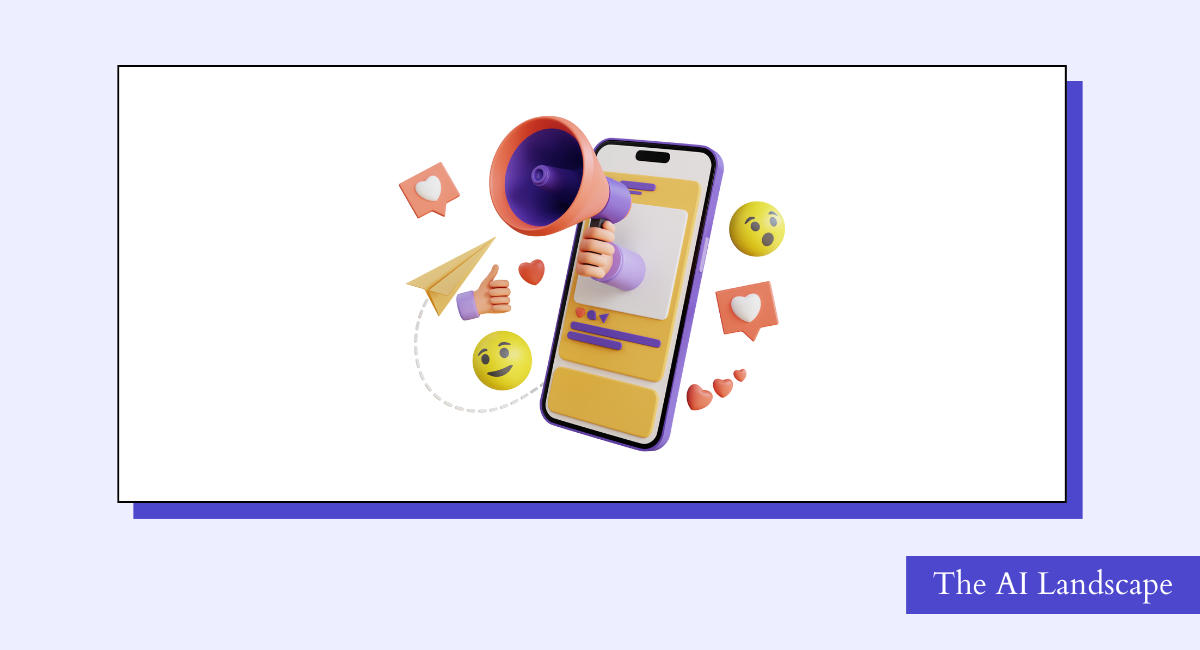Artificial intelligence (AI) has impacted various industries, and marketing is no exception.
AI’s ability to analyze vast amounts of data, identify user behavior, and personalize marketing campaigns is transforming how businesses reach and engage their customers.
In this article, we will explore five key ways AI is impacting marketing. Apart from that, we will also take a look at some examples of other businesses and how they are utilizing Artificial Intelligence technologies.
So, let us start with the guide:
1. Personalized Customer Experiences
As a business owner, you would understand that the market is competitive. Personalization is the key to driving engagement and conversions.
Artificial Intelligence allows marketers to create tailored experiences for individual customers based on their unique preferences, behaviors, and needs.
By analyzing data from
- business websites,
- social media interactions,
- user’s purchase history,
- and other sources,
AI can build detailed customer profiles that inform personalized marketing messages, product recommendations, and offers.
For example, online eCommerce platforms like Amazon use AI to recommend products to customers based on their past purchases and browsing behavior. This not only increases customer satisfaction but also boosts sales and revenue.
Similarly, travel websites like Booking.com leverage AI to personalize search results and show users hotels and flights that are most relevant to their interests and budgets.
2. Enhanced Predictive Analytics
AI can analyze historical data and identify patterns to predict future trends and user behaviors. This “crystal ball” effect allows marketers to make data-driven decisions about marketing campaigns, product launches, and working on marketing strategies.
For instance, artificial intelligence tools can analyze sales data to predict future demand for specific products, enabling businesses to optimize inventory management and avoid stock shortages or overstock.
Also, AI can predict customer churn and identify customers at risk of leaving, allowing businesses to intervene with targeted marketing campaigns and retention efforts.
3. Efficient Customer Support With Chatbots
AI-powered chatbots are becoming increasingly common on websites and social media platforms, providing 24/7 customer support and answering frequently asked questions.
These chatbots can handle simple inquiries like order tracking, product information, and troubleshooting, freeing up human agents for more complex issues. Some advanced chatbots can even take this further and answer complex queries for your customers.
This not only improves customer experience by providing immediate assistance but also reduces operational costs for businesses. Chatbots can also be programmed to collect valuable customer data and feedback, which can be used to improve products and services.
4. Content Creation and Optimization
AI has already transformed the content creation process by automating tasks like
- researching for keywords,
- generating blog titles,
- preparing content briefs,
- and generating content.
AI tools like ChatGPT, and Google Bard can help businesses identify popular topics, trends, and keywords, helping marketers create content that aligns with their target audience and ranks higher in search engine results pages (SERPs).
5. Streamlined Campaign Management
Automation is another great help that has been made possible with AI technology. You can automate various tasks involved in managing marketing campaigns, saving time and resources.
From budget allocation and campaign scheduling to performance tracking and optimization, AI can handle complex tasks with precision and efficiency.
AI can also analyze campaign data in real time, identifying areas for improvement and recommending adjustments to optimize performance. This allows marketers to make data-driven decisions and ensure their campaigns are achieving the desired results.
Examples of AI-powered marketing tools:
- Google Marketing Platform
- HubSpot
- Marketo
- Salesforce Marketing Cloud
- Adobe Marketing Cloud
- IBM Watson Marketing
- Oracle Marketing Cloud
- Persado
Looking towards the future:
You should also understand that AI is still in its early stages of development, and its impact on marketing will continue to witness several changes. We can expect to see more innovative tools and technologies for marketers in the coming years.
And, if you want to know further, here are some potential future trends:
- Hyper-personalization: AI will enable marketers to create highly personalized experiences for individual customers, leading to increased engagement and loyalty.
- Predictive customer behavior: It will become even more accurate in predicting customer behavior, allowing businesses to anticipate customer needs and proactively address them.
- AI-powered creative content: AI will play a larger role in creating compelling marketing content, such as videos, images, and articles.
- Rise of AI-powered marketing assistants: AI assistants will handle a wide range of marketing tasks, freeing up human marketers to focus on strategic initiatives.
It’s important to remember that AI is a tool, not a replacement for human creativity and strategic thinking. The most successful marketers will be those who can use the power of AI to enhance their skills and achieve their marketing goals.

